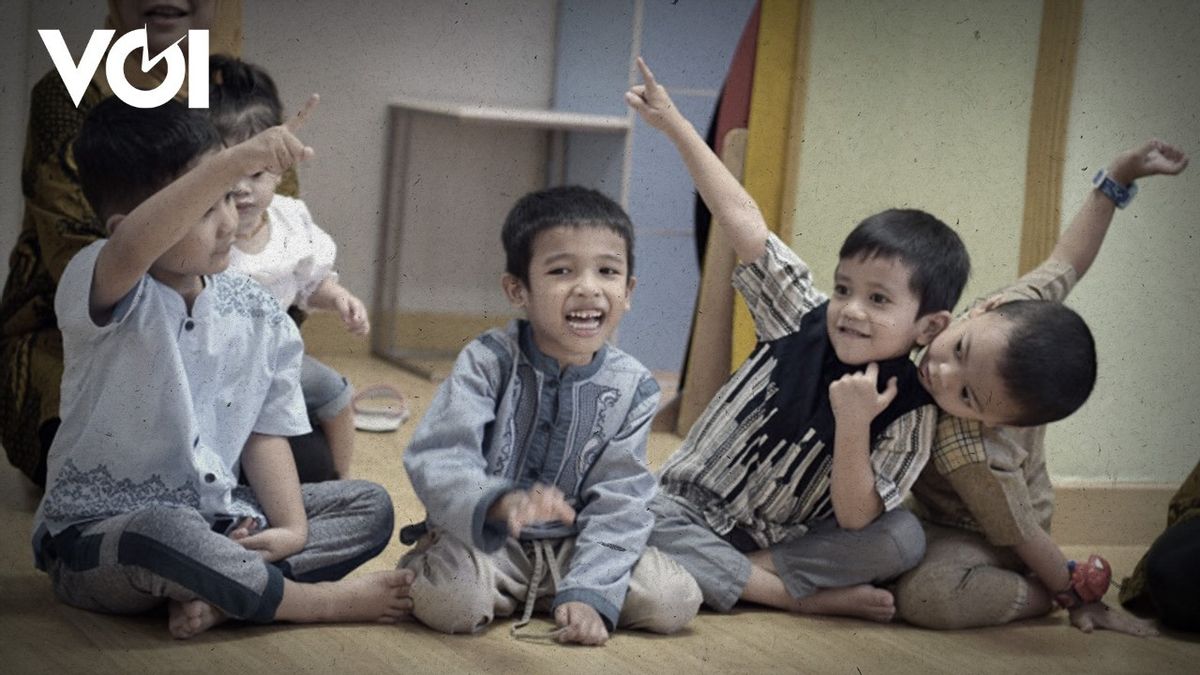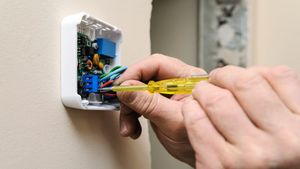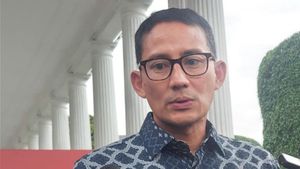
Active questioning is one sign that your little one is growing in his golden period. This curiosity should be nurtured until he is an adult. But in fact, many children begin to lose their curiosity when they enter formal education. The final part of VOI's signature series, "Gilding the Golden Age of Children," is about anything that buries the child's curiosity.
There will come a time for every human baby to grow up and become an active questioner. This usually happens when the baby is cute. In this period also took place its golden age. This is a moment that parents have to optimize, so that the baby's growth and development is perfect.
Starting from feeling how food tastes, being aware of the color spectrum, and new things that almost all make an impression for the baby. It continues to grow. Until then, gradually starting to be able to touch, taste, smell, and take advantage of other senses.
What needs to be realized is that it has become a natural for a baby, as well as growing curiosity. This was done to move their knowledge structure closer to that of an adult. The ability to ask questions to gather needed information is an efficient mechanism for cognitive development.
As revealed by Michael M Chouinard in his journal entitled Children's Questions: A Mechanism for Cognitive Development, a child will not stop asking questions until he / she really gets an informative answer. This fact was successfully revealed through the analysis of toddlers.
The results of the analysis also showed that the content of the children's questions paralleled their conceptual progress and shifted in exchange to reflect the learning process. So, this journal shows that the components of child development have existed from an early age and are used by children from the very beginning of development.

A child's sense of curiosity does come gradually. And as Alice Sterling Honig, Professor of Child Development at Syracuse University New York, explains in Scholastic, that stage has been going on since he was just born. According to Honig, after some time the second baby was born, he began to stare deeply into the adult's eyes "as if trying to find out all about that person."
The cruising power of the baby is actually very strong. This can be seen by drawing his hand to his mouth and when he learns to suck his fingers for self-comfort.
While preschoolers who are around 2-4 years old, will be interested in an item or a situation. often followed his friends' directions, and his curiosity arose. Sometimes it can be hard to sort out what's real and what's not. They are very curious about things that seem magical.
The child's curiosity is like breathing. They breathe in the world around them, process it, and breathe out understanding. Through this process, they build their own knowledge of the what, why and how of life.
Want to go to schoolThe children's curiosity was what motivated them to be so enthusiastic about going to school. As explained by Education Observer Donie Koesoema to VOI, according to him the desire of children to go to school is very natural and natural. According to him, the reason children around 3 or 4 years of age want to go to school could be due to environmental and family influences.
"In school, you can meet the children, meet the teacher, then her brother will come home to tell you when he has met his other friends. The kids like to hang out and play," said Donie.

Donie said, besides being curious, children are social creatures who have the intuition to make friends with other children. Their image that school is a game and lots of friends, encourages their desire to go to school soon.
In the first few months of entering kindergarten, the child begins to move through an egocentric, self-centered stage of development. Their curiosity is mostly about the observations they make in life and what they do most often.
The children began to wonder about what he saw at school and at home, about nature, about their family and friends. They also began to become aware of their growing body.
Generally, children aged 5 and 6 years or those who have just entered elementary school (SD), usually have a more mature sense of curiosity. Characteristics, they often wonder about how things can work.
Often they will ask the most amazing questions that adults rarely think of. For example, the question "Where did the night come from? Where do the ants go?"
But unfortunately, the enthusiasm to explore this knowledge can fade when the child starts entering formal school. Especially after entering elementary school. What caused it?

To answer this, Education Observer Donie Koesoema has the answer. According to him, the waning of children's curiosity occurs when they are faced with strict rules and discipline, such as having to be able to read, sit in an orderly manner, and listen to the teacher.
Moreover, continued Donie, grade 1 SD children are a transition period from kindergarten (TK). When learning is forced, his curiosity gradually dies.
"Class 1 should still play a lot, but writing has begun to be introduced. Meanwhile, grade 1 children in Indonesia must be able to read and write, so that in kindergarten they have learned to read. When children are forced to learn to read and write, while their children still want to play, that's what turn off creativity. His curiosity died, "said Donie.
This shows that there are problems with the learning process and curriculum in Indonesia. In particular, one that allows a child's potential to stop. So, how the creativity and curiosity of children depends on the environment and the parents who direct it.
Support from parents and the environment from an early age is very important for children's intelligence. This is also proven by the parents of chess player Judit Polgár, who is a chess Grand Master from Hungary. Judit's success in becoming a world chess player is known to be inseparable from the role of her parents.
Judit and his two older sisters, Grandmaster Susan and International Master Sofia, were an educational experiment conducted by their father, László Polgár. Not a gruesome experiment, it is an experiment to prove that children can achieve extraordinary achievements if trained in a field from a very early age.
"A genius is not born, but educated and trained. When a child is born healthy, they all have genius potential." said László.
The English, Chinese, Japanese, Arabic, and French versions are automatically generated by the AI. So there may still be inaccuracies in translating, please always see Indonesian as our main language. (system supported by DigitalSiber.id)












